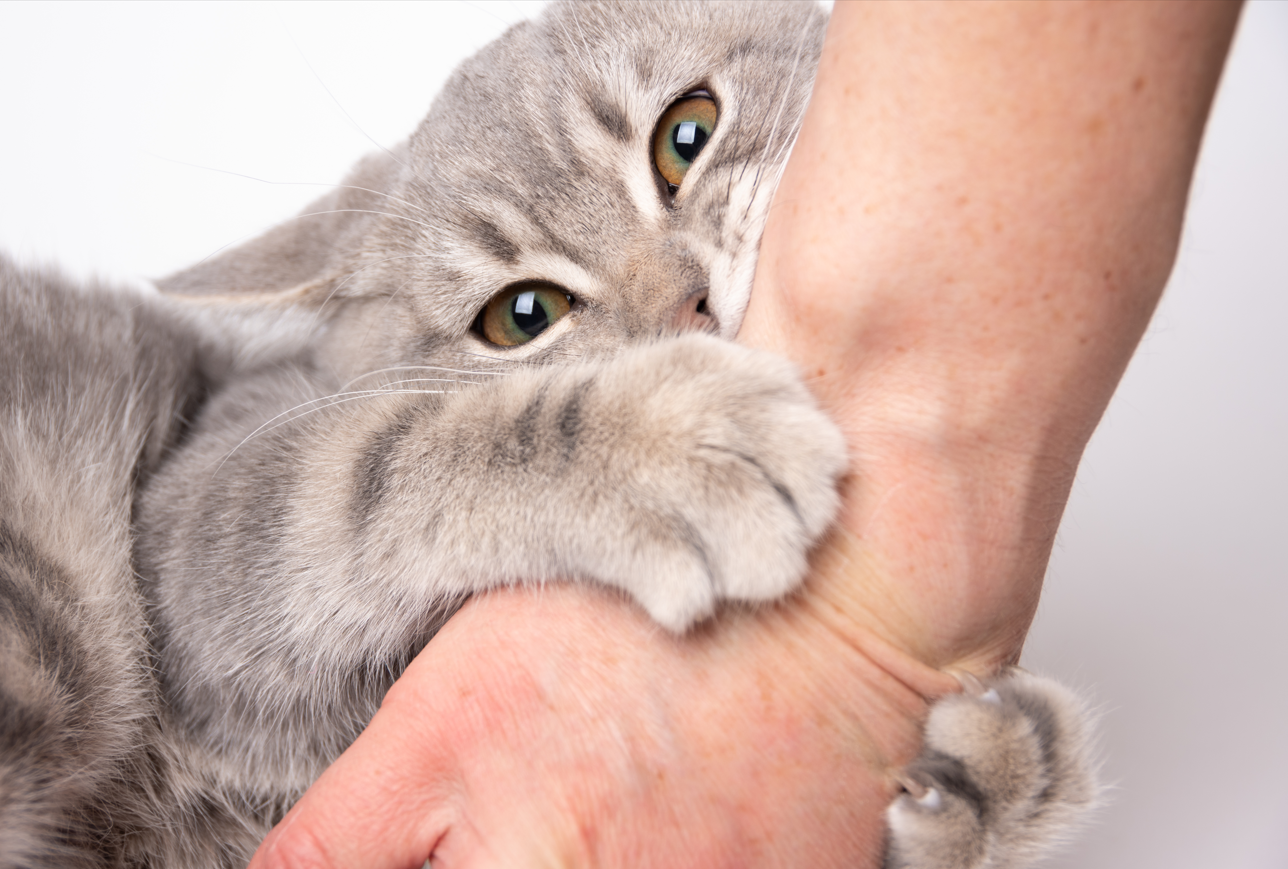
We love sharing our lives with animals. In fact, few things compare with a good snuggle, and for many of us, the time spent holding and nuzzling a sweet, furry feline is life-affirming. Part of what makes this closeness possible is a proactive approach to disease prevention. Unfortunately, zoonotic diseases, or those that can be transmitted between animals and people, can make living in such close proximity dangerous. Cat scratch fever is one such illness.
A Thin, Invisible Line
Cats have the potential to carry various zoonotic diseases, including rabies, ringworm, toxoplasmosis, and more. A reasonable concern for most cat owners is cat scratch fever, or Cat-Scratch Disease (CSD). A bacterial infection caused by the bacterium Bartonella henselae, CSD is a zoonotic disease carried by approximately 40% of all cats at some point in their lives.
It would be one thing if owners saw obvious symptoms of cat scratch fever, but many cats show no signs of illness. Most carriers of the disease are kittens younger than a year.
How to Protect Yourself
Cats get infected with Bartonella by way of fleas, specifically through bites and flea dirt (feces). When flea dirt builds up around the feet and claws, or near the mouth, the chances of passing the infection to others increases. If a cat with the bacterium scratches or bites you, or licks an open wound, the Bartonella organism can enter the bloodstream and cause infection.
Signs of Cat-Scratch Disease in humans can include:
- Redness at the site of the wound
- Fatigue
- Swollen lymph nodes
- Fever
- Headache
- Decreased appetite
While CSD can be mild enough to warrant little to no medical intervention, reactions can be more serious in young and immunocompromised people.
Either way, it is worth it to protect yourself and your family from problems associated with CSD.
Good Kitty
Your cat benefits from an effective parasite prevention medication, and so does your entire household. Keeping them free of a flea infestation is an important precaution, but knowing that their medication can prevent CSD is an additional motivator.
Furthermore, cat owners can protect themselves from CSD in these ways:
- Wash cat bites or scratches right away with hot water and soap.
- Try not to handle unfamiliar cats, and if you do, be sure they don’t bite or scratch you.
- Trim your cat’s nails regularly to minimize their scratching power.
- Keep your house as tidy as possible to reduce any flea numbers.
While fleas can find even strictly indoor cats, it is proven that indoor cats have lower rates of problems related to fleas and other parasites.
No More Cat Scratch Fever
If you have any questions about your cat’s health, safety, lifestyle, and behavior, please give us a call at 425-882-7788 for our Kirkland location or 425-276-4100 for our Renton location. We’re always here for your cat at Eastside Veterinary Associates, and hope you and your cat can squeeze in a good, disease-free, snuggle soon.
